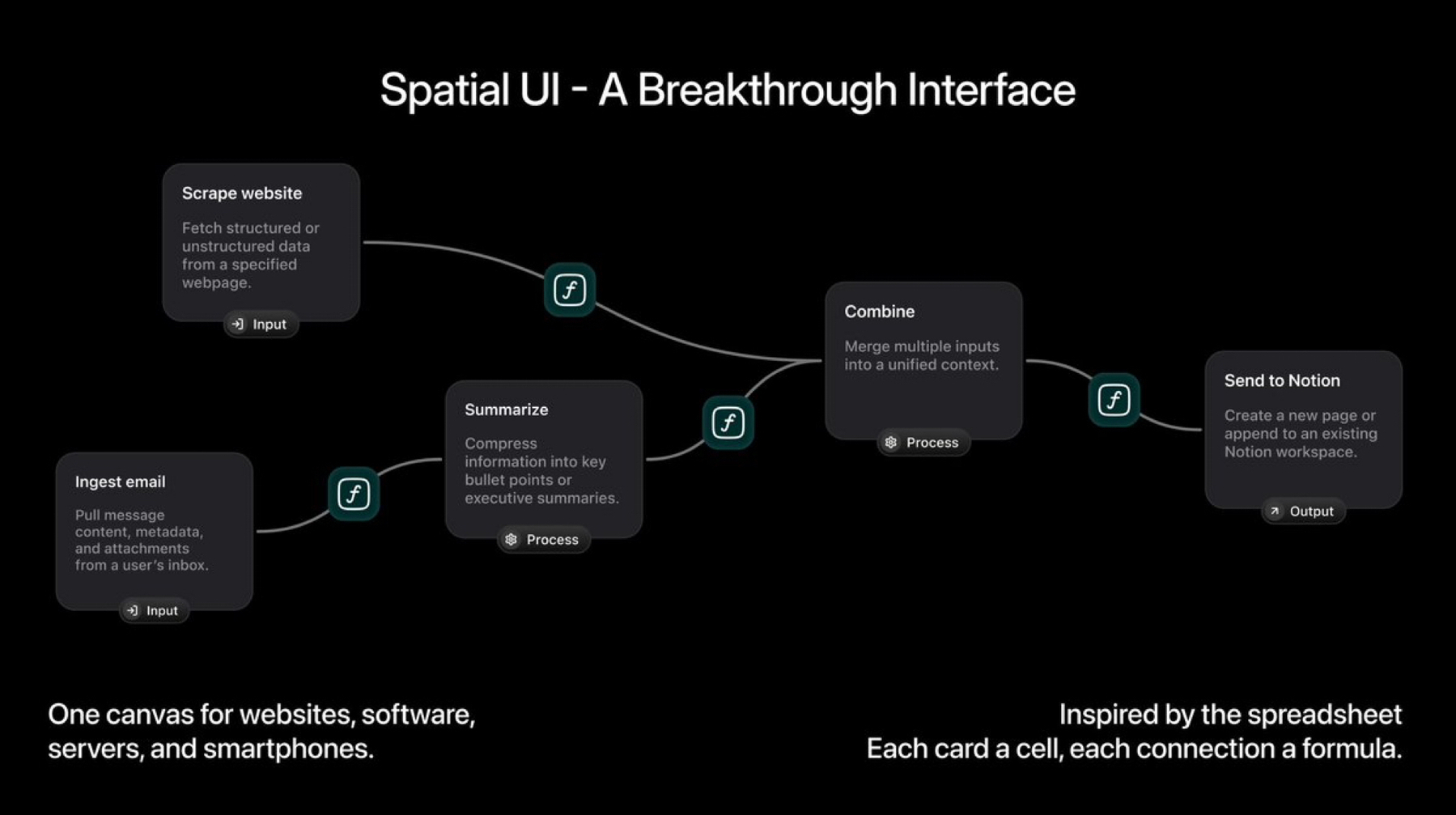A Website, An App, or An Agent
Was getting ready for a network and research call when again having flashbacks of using the “secretary“ (Humane AiPin) as a research assistant and meeting prep device. I started to get discouraged and then moved over to the Brilliant Labs Frame glasses to try and shoehorn some of the usage there and thought about another context where it may be possible to leverage the connectivity to open AI, Perplexity, Gemini, etc. for some homework and interactions. This took me down the rabbit trail of using Replit to begin prototyping a website/application. And when I got about halfway through, I came to this thought: “we are now in the space of people questioning whether they need a website, an application, or an agent.”
The Way It Used to Be
15 years ago the conversation was “do you need an app“ because of the rising popularity of the iPhone and the carrier-friendly establishment of Android as the next mobile platform (really ASOP, since the failures of Honeycomb caused Google to push harder for modular components). And it made sense. The Internet was firmly in place as the next major platform and just about everybody who had some kind of common sense had a website and began to have a social media presence (ok, folks had social and email, but companies and brands needed that website). But the question remained for a lot of folks about the validity of having an application. It made a lot of sense to have an application if you were going to use some of the native characteristics of mobile devices. If you were gonna take advantage of location, accelerometer, LIDAR, or maybe just the speed and getting information and getting feedback afterwards. An application versus a website was a battle many waged.
A Route That’s Becoming
Now, there’s this concept of an agent/agentic services (see the AWS explainer here). This idea that some kind of programmable interface goes out into the Internet and any accessible database and begins to connect information and activity in a way that moves faster than a single person doing so. In some cases, you could have an agent (think like a web crawler) go across several website to do a comparison, build an analysis, and then build a counter argument to that analysis, leaving the person who deployed that agent to use their expertise to discern how to take a process or product forward.
This idea of using an agent is not that much different than having a team of interns or administrators to go out and do some footwork for information that is rolled up into a larger report that turns into a decision matrix. The expert is able to use that decision matrix because they have a refined sensor within themselves to understand what’s important to keep and what’s important to throw away. They know the questions to ask, and how to validate the output of that cohesive/collective report.
What ends up happening for some of us is that we might use agents, or we might want to use agents, but we may not have the expertise to discern what is important to keep and what is not important to keep. We might deploy an agent to build an application or a website, but because we do not know about security protocols, that agent builds a website that has a very clear security/authentication hole that a security professional, or even a competent web developer would’ve been able to figure out And probably not even have as an issue. But the agent does have this issue because it was not given the parameters to be secure.
Therein lies the challenge for the new age of computing that we seem to be in. If you want a website, great. You’ll have to conquer discoverability. You have to do better than just search engine optimization (SEO) because optimizing for being discoverable isn’t the same as being valuable to content validity or sentiment.
If you have an application, you’d probably have a captive audience,. But your application has to take advantage of diminishing attention. Everything comes to the mobile. So how does your application stand out? Time in the application, and also how contextual is the information to the thing someone needs at that very moment?
And if you are doing the new thing - this agentic/LLM/AI thing, you are working with agent-based experiences to bring together layers of manual activity. Or, you are embracing a type of sensory experience that could otherwise not be done inside of our human capacity… a type of calculation, analysis, creation, and connection that would take a lot more time than what we may be given.
Decision Points for Web, App, Agent Experiences
How do you make the decision as to go for one or the other? Do you make that decision? Or do you allow the markets and the times and your audiences to make that decision?
This is the latest battleground. If you need a website, an application, or an agent… you have to figure out what about the information and services that you stand for are necessary and needed. And then put yourself in the best container to be found, and utilized.
image via Hyperspace, a generative “AI” web browser
